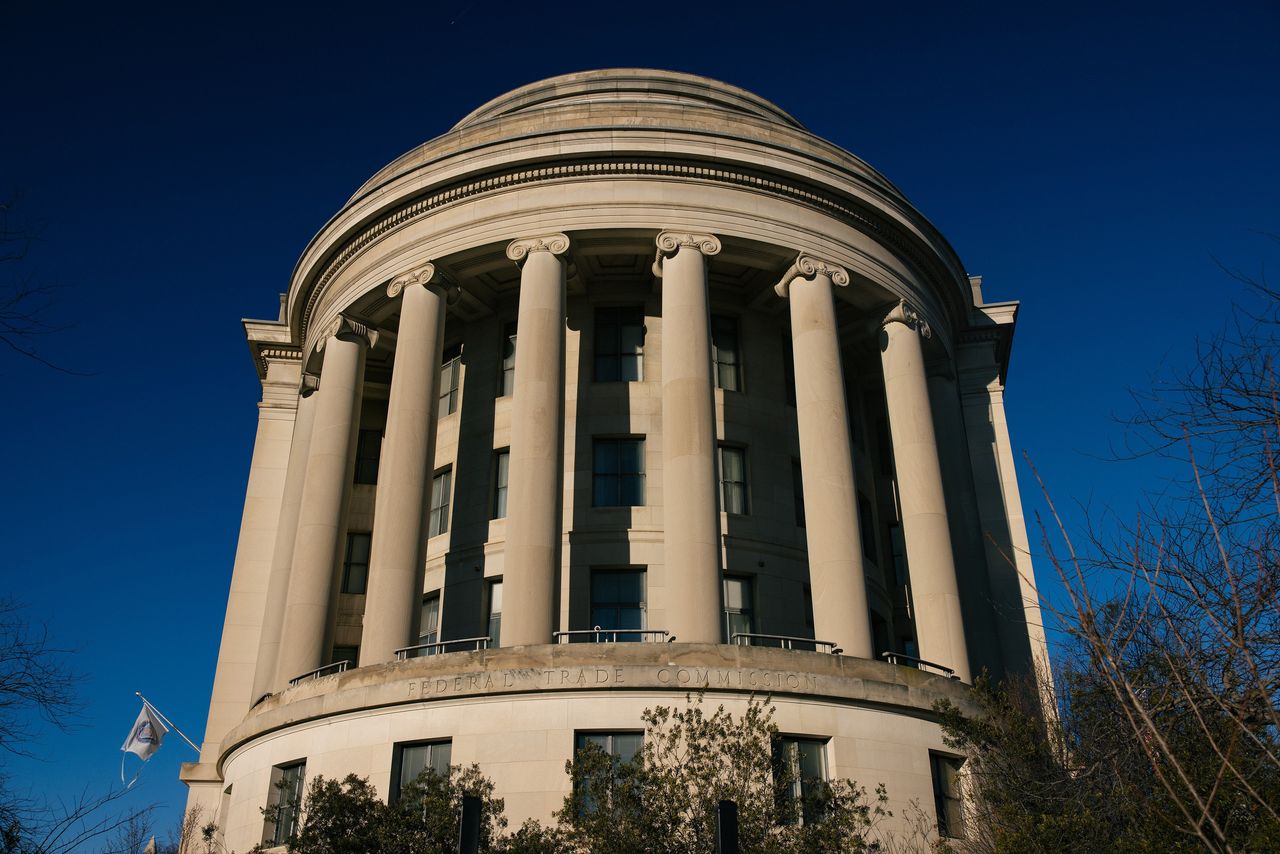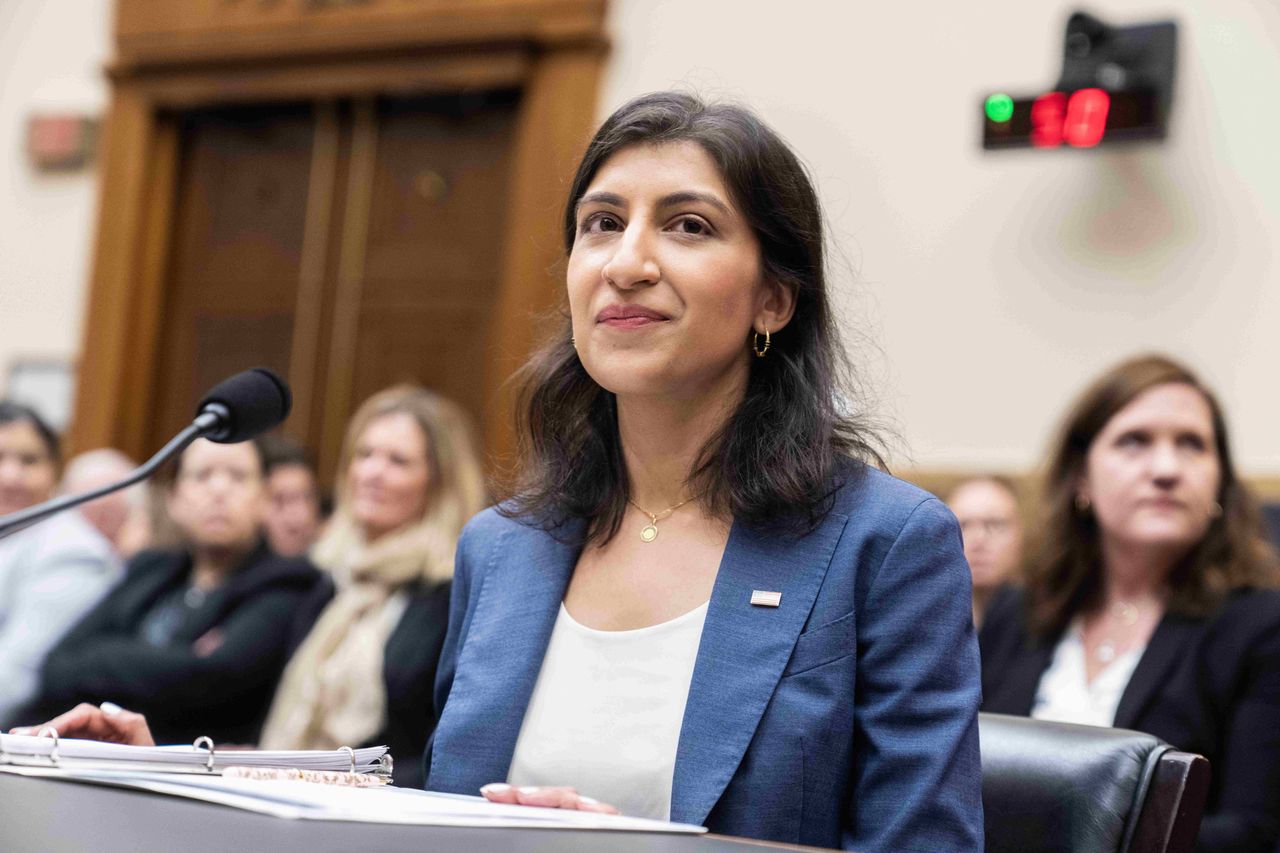
WASHINGTON—The Federal Trade Commission on Tuesday banned employers from using noncompete contracts to prevent most workers from joining rival firms, achieving a policy goal that is popular with labor but faces an imminent court challenge from business groups.
The measure, approved by the agency’s Democratic majority on a 3-to-2 vote, marks the first time in more than 50 years that FTC officials have issued a regulation to mandate an economywide change in how companies compete. The commission has historically operated like a law enforcement agency, investigating and suing individual companies over practices or deals deemed to violate the law.
The rule prohibits companies from enforcing existing noncompete agreements on anyone other than senior executives. It also bans employers from imposing new noncompete contracts on senior executives in the future.
FTC Chair Lina Khan said the rule restores rights to Americans that corporations have taken by imposing noncompete clauses in the workplace. “Robbing people of their economic liberty also robs them of all sorts of other freedoms,” she said.
The Biden administration pushed for a regulatory assault on noncompetes in 2021, when the White House issued a blueprint for stricter enforcement of the antitrust laws. The rule is the capstone of a larger set of moves at the FTC that have elevated the interests of workers in antitrust enforcement.

Noncompete clauses violate a 110-year-old law that prohibits unfair methods of competition, the FTC says. The restrictions hamper competition for labor, the agency says, and result in lower pay and benefits for workers.
The practice has grown more prevalent in the U.S. economy and now affects nearly one in five American workers. Even lower-wage workers such as restaurant employees and hair stylists, who lack access to intellectual property or trade secrets, have been subject to them.
Sales staff, engineers, doctors and salon workers are among the most common types of workers affected by litigation of noncompete clauses, according to research published by Cornell University professor Matt Marx in 2022.
The FTC’s final rule becomes effective in four months. The U.S. Chamber of Commerce plans to sue the FTC as soon as Wednesday over the rule. The suit would argue that the FTC lacks the legal authority to issue the rule and would ask a federal court to invalidate it, Chamber officials said this week.
“If they can issue regulations with respect to unfair methods of competition, then there’s really no aspect of the U.S. economy they couldn’t regulate,” said Neil Bradley, head of strategic advocacy for the Chamber.
States have traditionally regulated noncompete agreements, with some states banning them completely. In California, the lack of noncompete restrictions has allowed talented engineers and other tech workers to easily switch employers or start their own companies.
But New York Gov. Kathy Hochul last year vetoed legislation that would have banned them in her state, including on Wall Street. Hochul said at the time that legislation should preserve noncompetes for some higher-compensated employees.
One of Wall Street’s biggest trade groups, the Securities Industry and Financial Markets Association, told the FTC last year that noncompetes help brokerages and asset managers protect trade secrets and other sensitive information from leaking to rivals.
Sifma warned that banks and credit unions are exempt from FTC regulation and would be able to keep using noncompetes, giving them an advantage over other financial firms subject to the restriction. Nonprofit healthcare employers also are exempt from the rule’s reach.
Outlawing noncompetes is hugely popular with many workers.
Holly Clark, a hairstylist based in St. Petersburg, Fla., said she encountered a noncompete clause after high school when she looked for a job at a spa. She objected to the restriction and didn’t take the job, even though it would have offered better benefits than positions at smaller salons.
Clark, who now runs her own salon, says noncompetes have made it difficult to bring in employees because so many workers are covered by them.
“Everybody’s locked down by contracts,” Clark said. “I’m very successful because I did not get stuck in a noncompete.”
Sabrina Parris, a tax consultant in Hickory, N.C., signed a noncompete agreement early in her career that blocked her from working with former clients if she left her then-employer, an accounting firm. When she departed, hoping to start her own business, the employer reminded her of that contract, she said.
After she started the company, which helped small businesses with tax compliance, she turned down former clients when they reached out. “I told them I couldn’t work with them, and that they were in good hands and should stay where they were,” said Parris, who said she also drove Uber on nights and weekends to supplement her income. “The noncompete scared me a little.”
The FTC hasn’t traditionally behaved like a regulator, at least with respect to its antitrust enforcement mission.
Regulatory agencies write rules that try to shape business practices by, for example, requiring truthful disclosures or forbidding certain conflicts of interest. But the FTC and the Justice Department, which share antitrust authority, have used enforcement actions—mainly civil lawsuits—to stop conduct they believe violates the antitrust laws.
Before taking over the FTC, Khan wrote that approach hadn’t served consumers well. Courts had become too timid, she argued, about strictly enforcing the antitrust laws and had allowed monopolies to flourish across the economy. And case-by-case enforcement, she said, was often too slow to keep up with market trends, while consumers were shut out from participating in the cases.
Writing rules to define unfair methods of competition was a better approach, she concluded. The FTC says it gets that authority—even if it has hardly ever been used—from an obscure section of a law that created the commission in 1914.
The Chamber of Commerce says the law never granted that power to the FTC, which would become an uber-regulator of American business if it continues to issue similar regulations.
The FTC has taken other steps under Khan that promote the interests of workers. The agency sued in February to block the $25 billion merger of Kroger and Albertsons, alleging the merger would dilute the ability of the United Food and Commercial Workers union to negotiate for better pay and benefits.
Write to Dave Michaels at [email protected] and Lindsay Ellis at [email protected]
News Related-
Russian court extends detention of Wall Street Journal reporter Gershkovich until end of January
-
Russian court extends detention of Wall Street Journal reporter Evan Gershkovich, arrested on espionage charges
-
Israel's economy recovered from previous wars with Hamas, but this one might go longer, hit harder
-
Stock market today: Asian shares mixed ahead of US consumer confidence and price data
-
EXCLUSIVE: ‘Sister Wives' star Christine Brown says her kids' happy marriages inspired her leave Kody Brown
-
NBA fans roast Clippers for losing to Nuggets without Jokic, Murray, Gordon
-
Panthers-Senators brawl ends in 10-minute penalty for all players on ice
-
CNBC Daily Open: Is record Black Friday sales spike a false dawn?
-
Freed Israeli hostage describes deteriorating conditions while being held by Hamas
-
High stakes and glitz mark the vote in Paris for the 2030 World Expo host
-
Biden’s unworkable nursing rule will harm seniors
-
Jalen Hurts: We did what we needed to do when it mattered the most
-
LeBron James takes NBA all-time minutes lead in career-worst loss
-
Vikings' Kevin O'Connell to evaluate Josh Dobbs, path forward at QB
